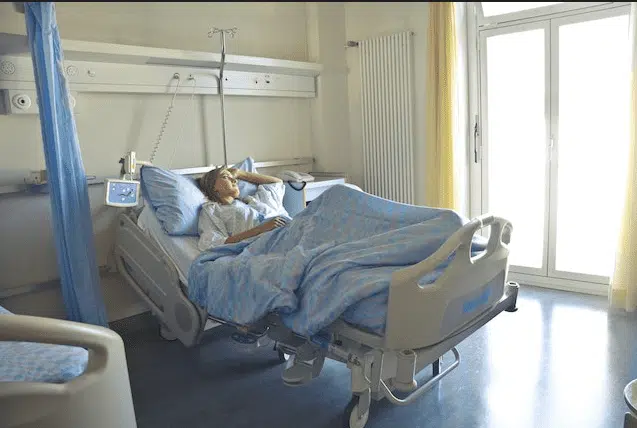Hospital Readmissions: Can Home Health Care Help?
Posted in Senior Health Care Tips
For most hospital patients receiving care for an illness or injury, there is a hope that once discharged, they can return to their everyday routines. Unfortunately, the in-home recovery process can take weeks or months, and everyday tasks that were once easy to accomplish might prove difficult or even dangerous. 
While hospital discharge planners play a critical role in helping patients safely return home, complications leading to hospital readmission are tragically common. A 2023 study by The Healthcare Cost and Utilization Project found that 14% of all adult hospital patients will be readmitted to hospital care within 30 days of discharge, even with proper pre-hospital visit preparation.
Hospital readmissions are expensive for both patients and providers, remove the patient from their familiar settings, and present an increased risk of contracting potentially deadly illnesses commonly found in hospitals like MRSA and pneumonia.
Fortunately, there is a growing body of research that suggests short term in-home care can significantly lower an older adult’s risk of hospital readmission. A recent American Journal of Managed Care study of 20,000 older adults discharged from the hospital found that those who received in-home care were 60 percent less likely to be readmitted to the hospital within 30 days.
There are several reasons why short term home health care may lower your chance of hospital readmission. These include:
Assistance with Household Tasks
Going grocery shopping, taking out trash, preparing meals, and caring for pets are all common tasks that may be complicated by the lingering effects of a hospital stay. New medication prescribed while in the hospital or short-term balance impairment due to a medical procedure might increase the risk of a fall or other event that leads to hospital readmission. Having assistance in the home can lower a patient’s risk of accidental injury while maintaining a safer, cleaner environment.
Nutrition
A healthy, well-rounded diet can be an effective defense against illness, however not every recently-discharged hospital patient may have the energy to consistently cook their own meals. With the assistance of a home caregiver, a patient can enjoy a healthy diet while they recover.
Medication Reminders
Many older adults leave the hospital directions to take one or more prescription medications as part of their ongoing recovery. Complying with these directions is critical to a successful recovery, but staying on schedule can be a challenge, especially if the patient’s sleep cycle is inconsistent due to either a lack of energy, or lingering pain from their hospital treatment.
Observation and Communication
Depending on the reason for their hospital stay, a patient may be given a list of symptoms to watch out for that could indicate a medical complication. While they may catch these symptoms on their own, the second set of eyes provided by a home health caregiver can provide critical supervision and may even catch changes before their patient.
Home caregivers can also serve as a critical communication link between a recovering hospital patient and their larger medical care network, feeding updates to the home health care agency’s nursing staff who can in turn communicate with the patient’s doctors on their behalf.
Companionship and Social Engagement
Recovering at home alone can be a lonely process, especially if the discharged patient lives alone. While phone calls and visits from family can help ease social isolation, weeks or months without consistent social engagement can have lasting effects on an individual’s mental health.
The presence of a home health caregiver, even for periodic visits, can ward off social isolation and provide the motivation and support a patient needs to follow their recovery plan.
If you or a loved one are concerned about at-home recovery following a hospital stay, call SelectCare today to learn how our team of compassionate caregivers can help, or request a free in-home health care guide.
